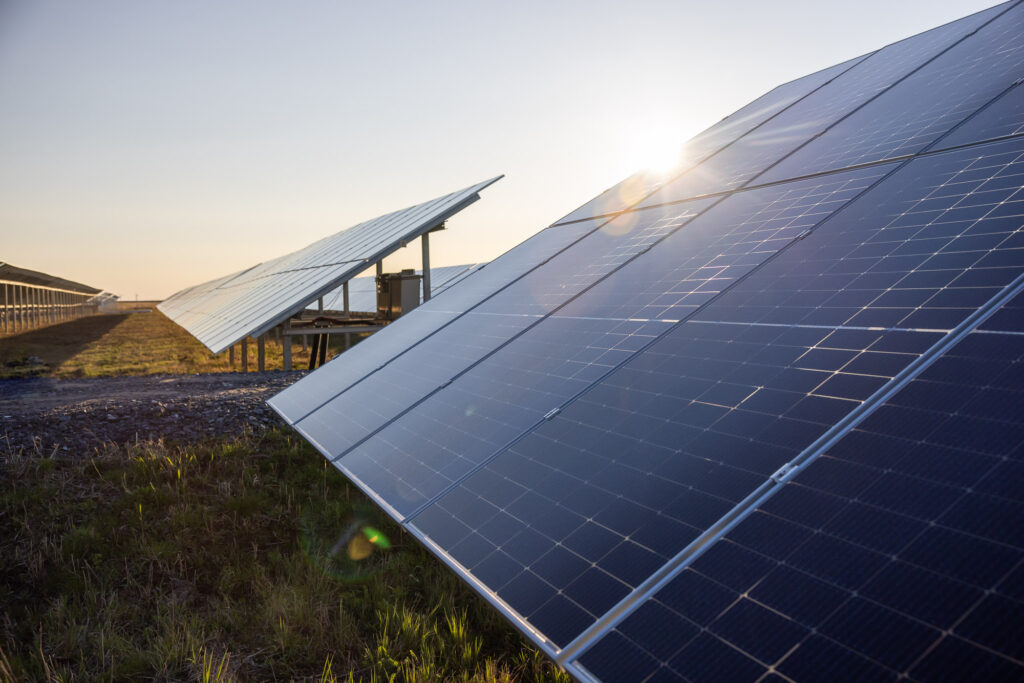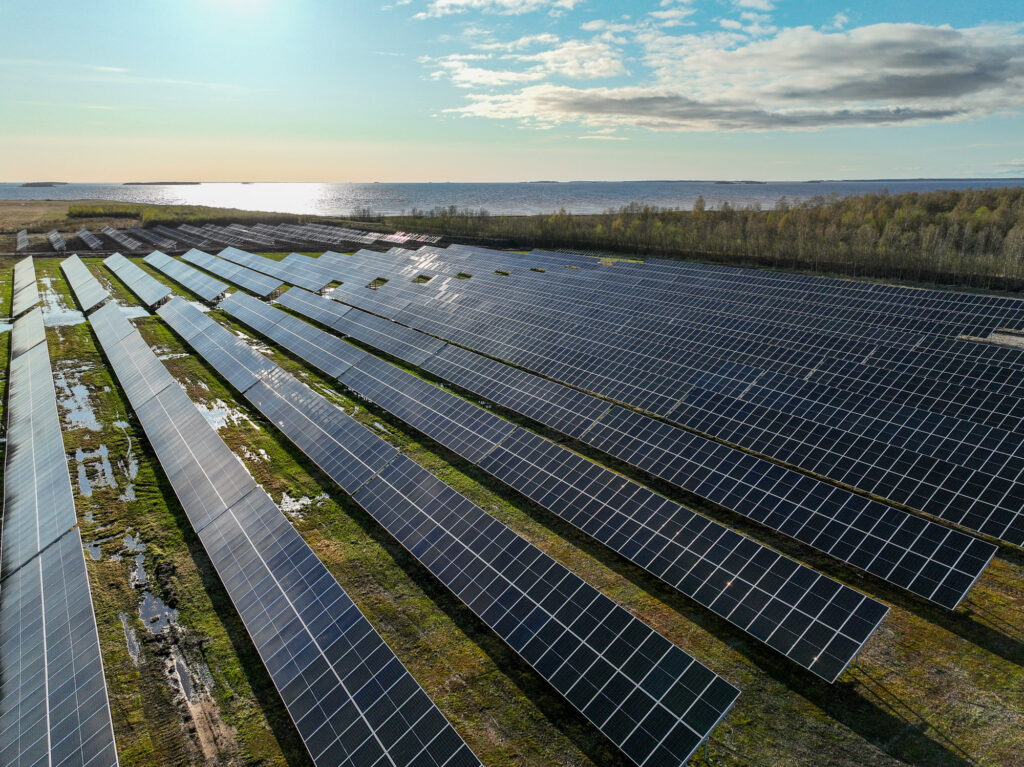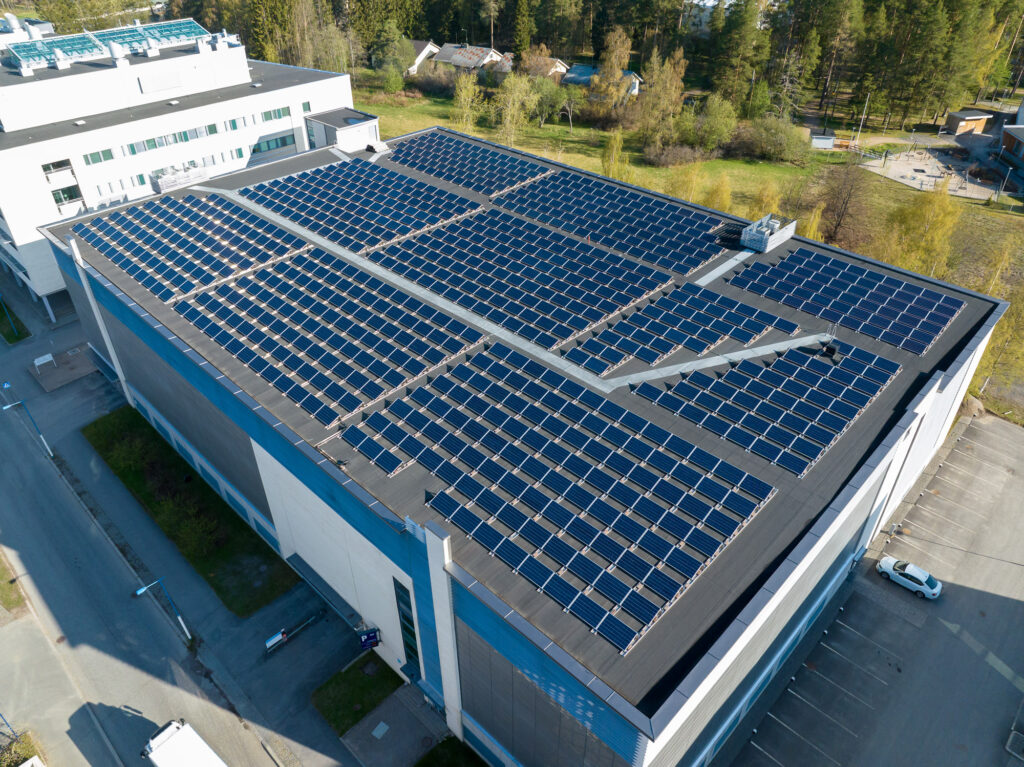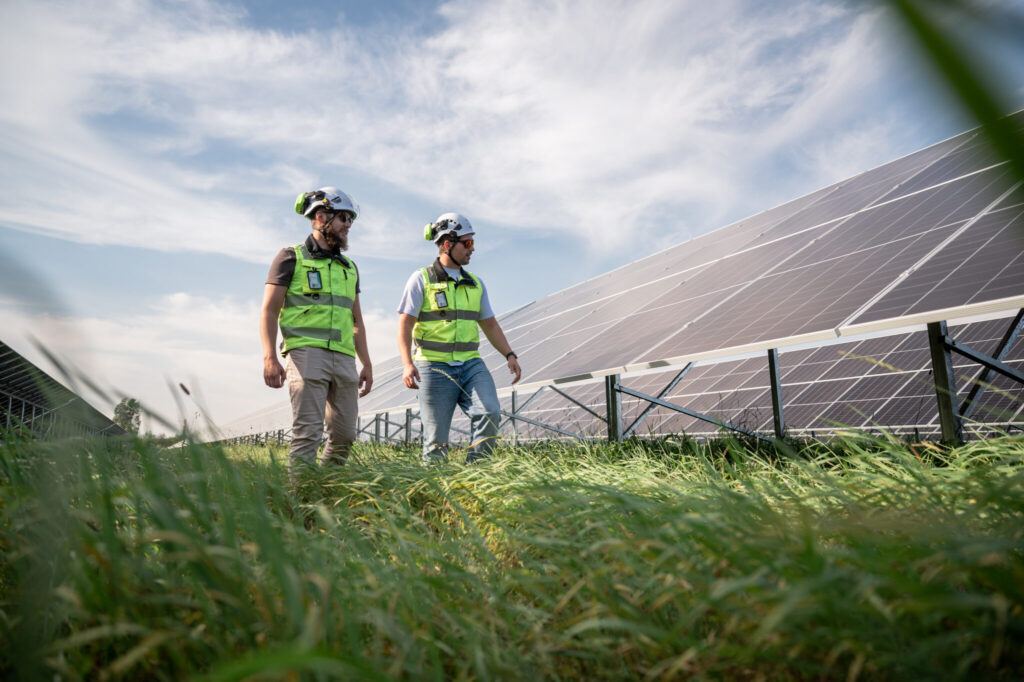Solar power plant
An Oomi Solar power plant is a cost-effective and responsible choice for businesses, the public sector and housing companies. As our customer, you can trust that your solar power plants will be implemented by professionals with experience gained through hundreds of projects.

Oomi Solar power plants
The purchase of a solar power plant is a major investment, and its successful implementation requires careful planning and expert professional help. Therefore, your company should work with the solar power plant supplier and experts to ensure that the procurement process goes as planned and that the solar power plant meets your company’s needs and requirements, e.g. in terms of the scale of the plant.
Advantages of a solar power plant
- Easy: the power plant requires virtually no effort to operate and is almost maintenance-free.
- Profitable: a solar power plant provides a good and reliable return on invested capital. The payback period for a solar power plant is 5–10 years. A solar power plant also has a long service life: our solar panels come with a production guarantee of up to 30 years.
- Responsible: solar power generation does not strain the climate or the local environment. Solar energy reduces your carbon footprint and supports your renewable energy goals.
Over 500 solar power projects completed
Did you know that we have our roots in local energy companies and have implemented hundreds of solar power projects and delivered thousands of solar panels to companies across Finland? In fact, Oomi Solar is the leading supplier of solar power plants in Finland.

Utility scale solar parks
An utility scale solar parks is an efficient way to produce clean and sustainable energy.

Commercial and industrial solar plants
The acquisition of a commercial and industrial solar plants reduces electricity procurement costs, provides a secure return on invested capital and demonstrates your company’s commitment to responsibility.

Energy storage
We implement energy storage solutions both in connection with solar power plants or charging projects and separately.
Frequently asked questions
Do you have questions about solar power plants? Not to worry – you can find answers to the most frequently asked questions right here.
Can’t find the answer? Contact us
A solar power plant generates electricity by using solar panels that convert solar radiation into electricity by means of the photovoltaic effect. The cells in the panels are often made of silicon and emit electrons when exposed to sunlight, generating an electric current. This current is converted from direct current (DC) to alternating current (AC) by an inverter, allowing it to be fed into the power grid or stored in batteries for later use. The efficiency of a solar power plant is affected by the quality of the panels, their installation and the environmental conditions. Solar power plants offer companies an environmentally friendly, economical source of energy and promote sustainable development.
A solar power plant offers a good return on invested capital in relation to the risk. Electricity is difficult to replace as a commodity, and solar power plant components have a long service life and warranty. A well-designed and well-built solar power plant can generate electricity for 30–50 years, depending on the installation site. Maintenance costs are also low compared to many other forms of electricity generation.
The size of the solar power plant depends largely on your company’s electricity consumption profile, i.e. at what time of day and how much electricity is used in the property, as well as the location and orientation of the power plant. A solar power plant is correctly dimensioned when at least 92% of the energy it produces is used in the property. An experienced professional can design a solar power plant of the right size to meet your company’s needs.
Solar power plants generate the most electricity when it is typically used extensively, i.e. in the middle of the day. This reduces the company’s profile cost (the cost incurred by the electricity supplier due to the distribution of electricity consumption), which may result in a lower purchase price for electricity. Furthermore, the electricity generated by the company reduces the amount of electricity purchased, resulting in savings in both purchase costs and network charges.
Companies often appoint an external safety coordinator for the project phase to ensure that regulations are followed and work is carried out safely during the project. Special attention is paid to the fire safety of the solar power plant in the choice of components and the technical implementation of the plant.
Design plays a significant role in the success of a solar power project. We design our solar power plants in-house, which allows us to proceed with the project according to schedule and ensure the accuracy of the final documentation.
A solar power plant consists of solar panels, an inverter and mounting racks. The properties of the solar power plant components, such as the efficiency and durability of the solar panels, affect the actual payback period of the power plant, which is why their quality matters.
Solar power plants require little maintenance. For example, it may not be necessary to clear the panels of snow, as snow usually falls off the slippery surface of the panels as the temperature rises, as well as with rain. If you want to ensure that your solar power plant is working every moment, it is a good idea to have a maintenance agreement with the plant, which includes annual checks, measurements and remote monitoring. With a maintenance agreement, you can avoid situations where the power plant is down during the peak production season.
The warranty for solar power plants depends on the components selected. Panel warranties range from 20 to 30 years, and inverter warranties range from 5 to 15 years. Racks typically come with a warranty of up to 30 years. With regard to warranty periods, you should also consider the likelihood of the operator being still around to take responsibility for the components at the end of the warranty period.
Leave your contact details and we will get back to you soon
Contact us or request a quote
Leave your contact details and one of our experts will get back to you.
